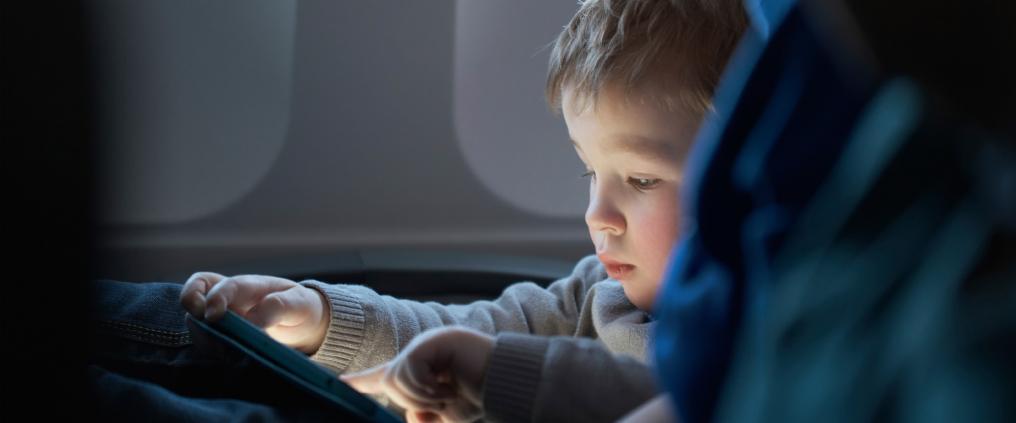You’ve got a long flight ahead and your plan is to settle down and sleep for most of the ride. But just as you’re about to get comfortable and put the sleeping mask on, you hear the first thundering cry from behind. With dread you realize that you’ve been seated in the danger zone: right in front of a family with a crying infant in tow. How do you make the best of it?
We asked Tatjana Pajamäki, Manager of family helplines at the Mannerheim League for Child Welfare, how fellow passengers can adjust to flying with kids.
1. Have a relaxed attitude
Pajamäki says it’s normal that a wailing baby or a tantrum-prone toddler can get on other passengers’ nerves. However, it is an adult’s responsibility to control their own emotions; flying is stressful enough for families without fellow travelers’ passing judgment.
”Adults shouldn’t let the annoyance get the better of them. Remember that babies aren’t crying to annoy you and parents don’t enjoy their kids yelling any more than you do. Letting your impatience show will only stress the family out more and create an uncomfortable atmosphere,” Pajamäki says.
”Rather, your attitude should communicate that everything is alright and a little disturbance is no huge bother. A relaxed atmosphere is the best way to ease tension for everyone.”
2. Prepare your mind and your music device
Instead of getting irked, you can take it as a given that you might be sharing space with children and their parents on a plane.
”Children are a natural part of life, and families have the same right to travel as everyone else. You can prepare your mind to be accepting of kids’ presence and pick some soothing music to listen to on your headphones to drown out extra noise,” Pajamäki advises.
3. Lend a hand when you can
Besides keeping your negative reactions at bay, you can also be supportive and help out when you see a parent struggling.
”Even small gestures can mean the world, especially when a parent is travelling alone with many children. You can, for instance, help by carrying extra things or chat with an older child while the parent feeds the baby,” Pajamäki suggests
”People, especially Finns, can be wary of butting into other people’s business, and will rather leave families to take care of themselves. I would, however, encourage helping out and sharing the everyday responsibility of child care in the spirit of community.”
4. Remember empathy
Pajamäki thinks that on some occasions it is reasonable to comment on the behavior of children.
”If the kids are older, and it seems like the parents don’t notice them behaving badly – kicking the front seat for instance. It’s okay to comment in a friendly way,” she says but emphasizes the need for empathy.
”Often the moms and dads themselves are in need of a break and a pat on the shoulder. It’s not the responsibility of parents to apologize for having children.”
Travelling with children?
